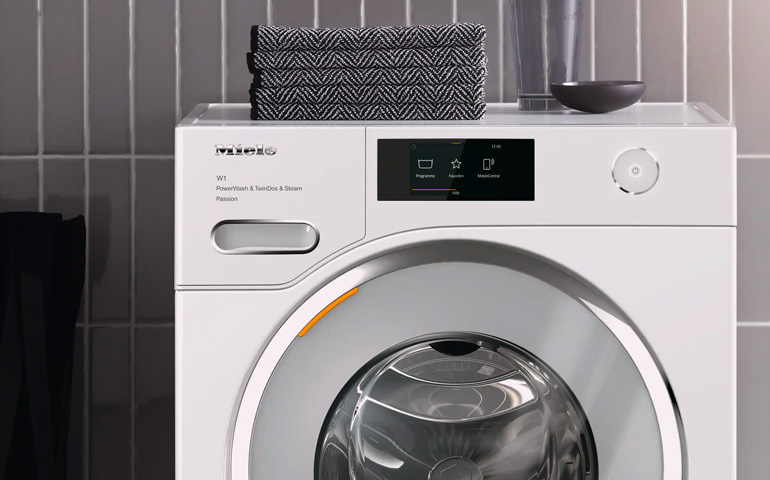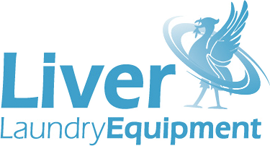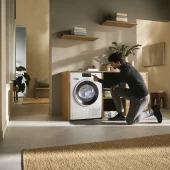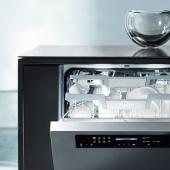
Laundry may not steal headlines, but it’s an important cog in sectors where hygiene, compliance, and operational efficiency are non-negotiable. In the world of facilities management, healthcare, hospitality, and manufacturing, laundry takes on far greater significance and one that requires performance, precision and scale.
Too often, organisations rely on domestic appliances for commercial needs which can be a costly mistake that undermines throughput, longevity, and regulatory compliance. As laundry operations grow more sophisticated, understanding the distinctions between domestic, commercial, and industrial machines becomes essential.
From convenience to capacity, from compliance to connectivity, here’s how the laundry landscape is evolving.
Domestic machines: built for convenience
Domestic washing machines are designed for everyday household use. They typically handle 5 – 9 kg loads, feature user-friendly interfaces, and prioritise aesthetics, energy efficiency and affordability. Their key characteristics are cycle duration, optimised for convenience, not speed; durability, built for 3 – 7 cycles per week; regulatory standards, focused on household safety and energy consumption (eg: EU energy labels).
These machines are perfect for personal use but are not engineered for repeated, high-throughput use. While brands like Miele offer long-life domestic options with their W1 line, these still operate below the requirements of business or institutional operations.
Commercial machines: designed for daily duty
Commercial washing machines offer enhanced durability, speed, and hygiene, so they are ideal for hotels, care homes, student halls, and smaller laundrettes. They typically handle 10 – 32 kg loads and are designed for frequent daily use.
What sets them apart are the robust components, featuring the likes of stainless steel drums, reinforced doors and high-torque motors; short, intensive and programmable cycles for specialist textiles; and compliance to meet healthcare hygiene protocols (eg: WRAS, HTM 01-04). Miele’s Little Giants and PWM series exemplify this category, combining fast throughput with advanced hygiene controls. Their Miele MOVE digital platform allows remote monitoring, predictive diagnostics, and usage tracking which is critical for facilities managers juggling multi-unit operations.
Industrial machines: engineered for scale
Industrial washers are the behemoths of the laundry world. Found in central laundries, prisons, hospitals and manufacturing facilities, they handle 50–150+ kg loads and operate under tough conditions.
Their key features include high-speed extractors to minimise drying time; custom cycles, for everything from surgical gowns to oil-stained uniforms; and automation, fully integrated with dosing systems and logistics platforms.
Miele’s PWM and PWT systems are ideal for smaller industrial settings such as:
- Veterinary clinics and dental practices: where hygiene and compact footprint matter
- Boutique hotels and spas: high turnover of towels and linens with limited space
- Laboratories and cleanrooms: where validated disinfection cycles and process documentation are essential
- Small manufacturing units: handling uniforms, rags, and PPE with robust throughput
These machines offer stackable configurations, WRAS Category 5 approval, and disinfection programmes – all within a footprint suited to constrained environments.
Why the right machine matters
Choosing the right laundry machine is about more than cost or drum size. In summary, it’s about:
- Compliance: healthcare providers face strict hygiene protocols
- Efficiency: energy and water bills rise dramatically with inappropriate machines
- Longevity: domestic machines used in commercial settings typically fail prematurely
- Sustainability: the right machine supports ESG goals and reduces environmental impact
Miele’s edge
Miele’s reputation rests on its commitment to quality, longevity, and innovation. Whether through its appWash platform for shared laundry services or its MopStar series for FM contractors, Miele is increasingly aligning its solutions with operational and sustainability targets.
As sectors evolve, from smart buildings to greener estates, the laundry room is becoming a strategic site of transformation. And whether you’re managing student accommodation or reprocessing mop heads for NHS sites, Miele offers systems that treat laundry not as a chore, but as a performance metric.
For more information and expert advice call 0151 263 7451.


















